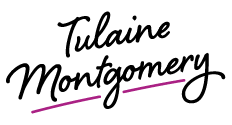S4 E4
Say More with Farai Chideya
On this episode of Say More, I spoke with Farai Chideya, the creator and host of Our Body Politic, a nationally syndicated public radio show and podcast reporting on how women of color experience the major political events of today and how they're impacting those very issues. She recently served as a program officer for journalism at the Ford Foundation and is the author of six books, including The Episodic Career: How to Thrive at Work in the Age of Disruption. She has covered every Presidential election from 1996 on; worked for FivethirtyEight, NPR, CNN, ABC, and NPR; and appeared on numerous other networks.
Catch the full episode here or watch below.
Farai and I talked about the conversations a country in crisis should be having, how to have discussions that hold space for complexity, building relationships across identity and ideology, and how to stay hopeful.
Here’s what I’m taking away from our conversation:
As a country fragmented across identity and ideology, there’s been talk about how people who think the same way are just talking to each other. If we’re going to break through where we are as a nation, we need to understand views that are not our own. Farai offered The Righting as a resource, a nonprofit that summarizes far-right news.
“If you can, read some news sources that you consider trustworthy and then read some that you don’t consider trustworthy and see how they’re different.” - Farai Chideya
These days, I’ve been struggling with how to be informed and well at the same time. I feel the need to watch media outlets, even if I know I’m being lied to. To navigate that balance, Farai emphasized the need to prioritize our mental health. If you think that news article might be traumatizing or harmful to you, don’t read it.
“If it comes down to your mental health versus the news, choose your mental health.”
In a society where intergenerational friendships are not often encouraged, it can be counterculture to build multigenerational relationships. As someone who has friends who range in age from 22 to 100, Farai speaks to the value of these relationships. It was beautiful to hear her speak to the power of witnessing her friends’ journeys.
“Friendship is to have parity in a relationship, where even though you may have different levels of wisdom, knowledge, wealth… you are meeting as equals on a human and spiritual playing field. It’s about having a chance to listen to people.”
I was reminded of this quote about hope, which resonated with the both of us. This year has taught us many things: that resilience is a choice available to me yet it comes at a cost; that restoration is required; and joy is something to fight for, to protect, but also to share generously.
People speak of hope as if it is this delicate, ephemeral thing made of whispers and spider's webs. It's not. Hope has dirt on her face, blood on her knuckles, the grit of the cobblestones in her hair, and just spat out a tooth as she rises for another go. - @CrowsFault
Farai, thank you for sharing how we can continue to create spaces that honor and celebrate the multitudes of Black women and how to take care of ourselves while navigating through difficult times.
What resonated most with you? Let me know in the comments.
Resources:
Recent Our Body Politic episodes:
CNN: I was there on January 6. Here's what I've learned in the year since
Medium: The Reconstruction of American Journalism in the Age of Culture War


